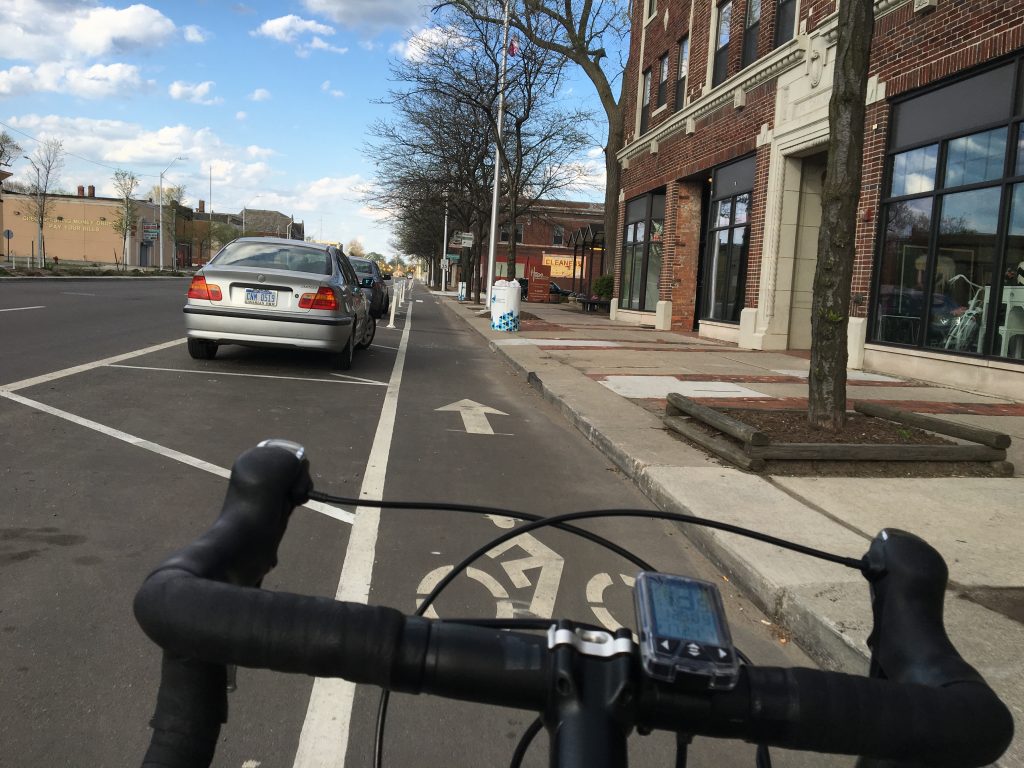Detroit is a top 10 city for bicycling, but could be better
The advocacy group PeopleForBikes rated bicycle networks in more than 600 American cities to determine the best places to ride a bicycle. Out of the large cities counted, Detroit came in tenth.

A protected bike lane in Detroit.
A new report says Detroit is the tenth most bikeable large city in the United States.
The advocacy group PeopleForBikes rated bicycle networks in more than 600 American cities to determine the best places to ride a bicycle.
Rebecca Davies is the group’s city ratings program director. She says of the six factors they consider, safety comes first.
“That’s working on speed limits and making sure they’re at an appropriately safe speed for everyone,” she says.
The group also looks at which cities protect bike lanes, reallocate road space, build safe intersections, connect biking networks and use trusted data. Then it allocates a score from 0 to 100. Detroit’s score was 42.
“There’s a lot of room for improvement,” Davies says.
What could Detroit do better?
PeopleForBikes sees a lot of potential for better biking in Detroit. Davies says the city has excess road capacity and encourages officials to rethink how they use streets to serve people.
“Modernize them. Provide space not just for people driving, but also for people walking and bicycling and taking the bus,” she says.
More: Detroiters may be learning to live with bike lanes
Davies says strong leadership would also improve Detroit’s bike network.
“It’s important to have those leaders in place and having a strong advocacy group that can hold leadership accountable,” she says.
Davies adds that leaders must be committed to modernizing roads and rethinking how people get around in a safe, efficient and equitable way.
“We’re really excited about the Joe Louis Greenway,” she says. “That can be a transformative project for the bike network in Detroit.”
How does Detroit stack up?
At 42, Detroit did better than most large cities. The median score for all cities regardless of size is 21 out of 100. The average large city score is 27. In 2018, Detroit’s score was in the mid-30s.
PeopleForBikes relies on U.S. census data and OpenStreetMap to create its rankings. The online map allows anyone to contribute information and edit it.
“That’s our main source for information about what’s on the streets, what bike infrastructure exists and where common destinations throughout the city are located like grocery stores and schools,” Davies says.
Trusted, accurate, up-to-date.
WDET strives to make our journalism accessible to everyone. As a public media institution, we maintain our journalistic integrity through independent support from readers like you. If you value WDET as your source of news, music and conversation, please make a gift today.
